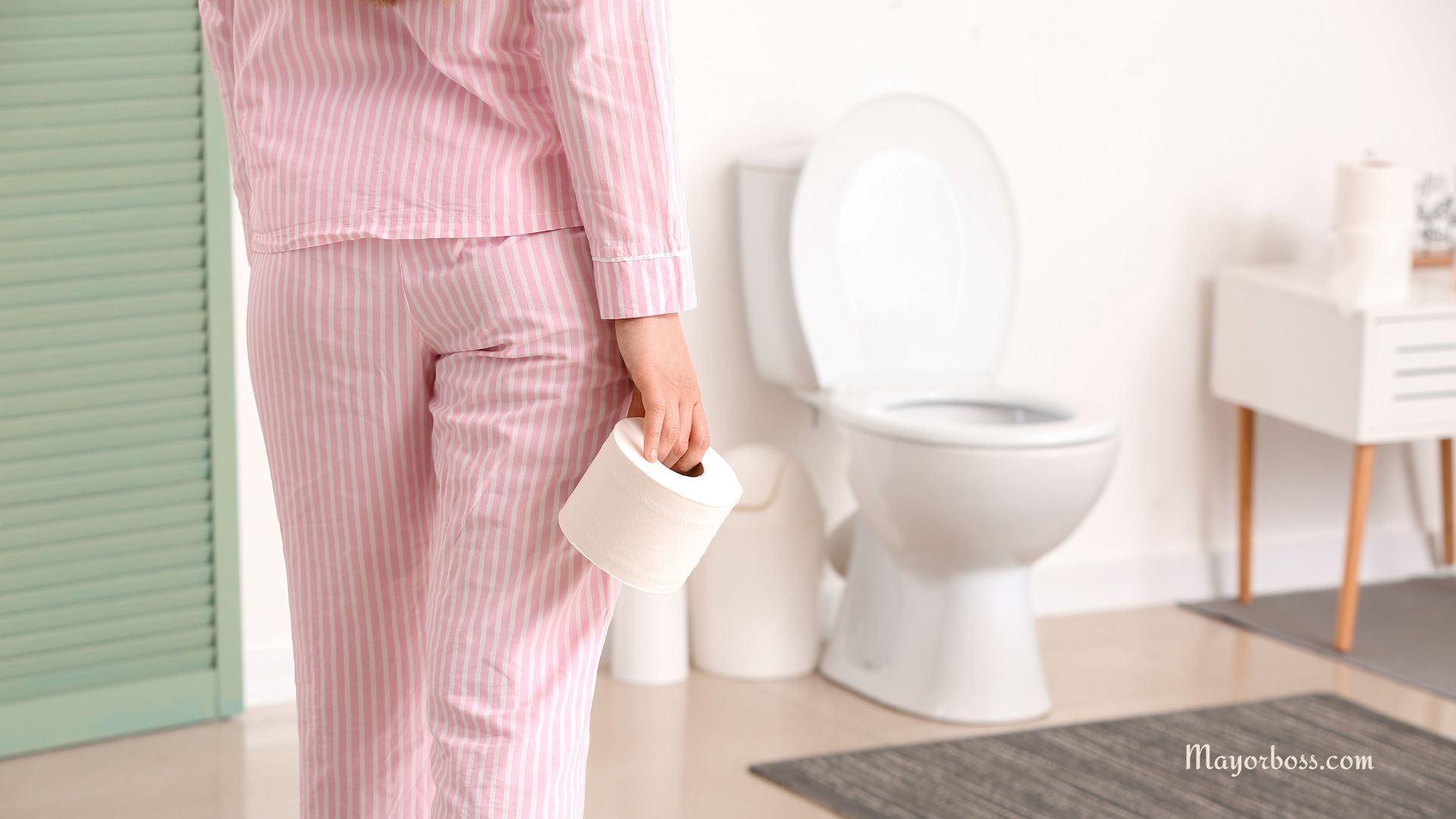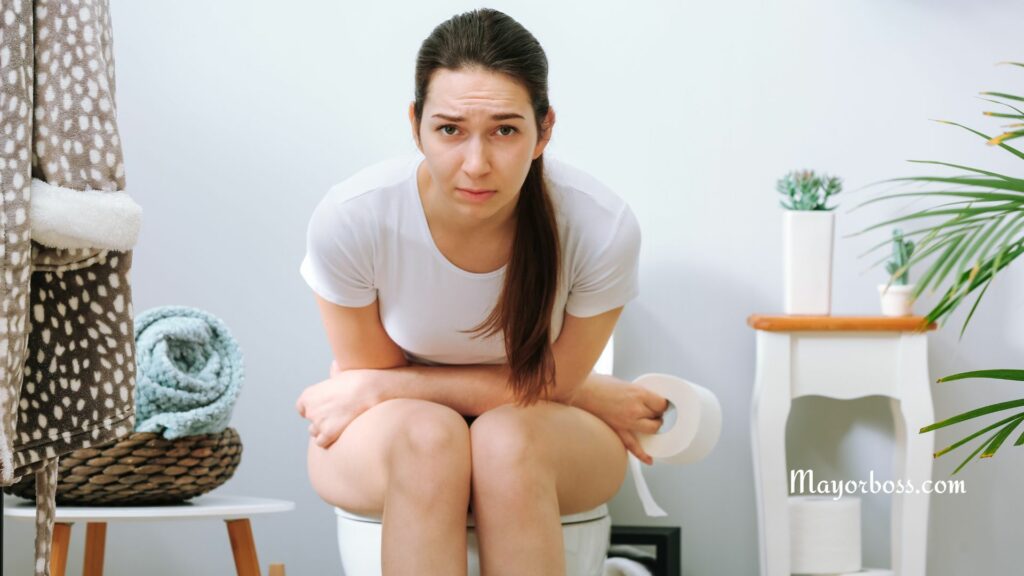How Often Should You Poop?
A lot of people wonder what’s normal when it comes to pooping. Maybe you worry that you don’t go often enough, or maybe you think you go too much. The truth is everyone is different, and what’s normal for one person might not be the same for someone else. So, how often should you actually be pooping? Please continue reading to learn what Dr. Natalia Hapych, a certified family medicine doctor, says about how often you should poop.

Pooping Frequency is Different for Everyone
According to Dr. Hapych, how often you poop is not the same for everyone. What’s normal for one person might be different for another. Most people poop anywhere from three times a day to three times a week. Yes, that’s a big range! But that’s totally normal. Some people like to poop every morning like clockwork, while others might only go a few times a week. What matters most is how you feel.
What Affects How Often You Poop?
How often you poop depends on several things, like:
- Diet: The food you eat affects how often you poop. Eating a lot of fiber—like fruits, vegetables, and whole grains—helps you go more often. Fiber keeps your digestive system working smoothly.
- Water Intake: Drinking enough water is very important. Water helps soften your poop, making it easier to pass. If you don’t drink enough, your poop can become hard and difficult to push out.
- Exercise: Physical activity keeps your digestive system moving. Even just taking a walk can help you poop more regularly.
- Stress: Stress can have a big impact on how often you poop. When you’re stressed, your body makes hormones that can slow down or speed up digestion.
- Medications and Health Problems: Some medicines, like painkillers, can cause constipation. Health problems like irritable bowel syndrome (IBS) or thyroid issues can also change how often you poop.
What is “Normal” When It Comes to Pooping?
The simple answer is that “normal” is what feels right for your body. If you poop three times a day and feel good, that’s your normal. If you go every other day and feel fine, that’s your normal too. You only need to worry if your pooping habits change a lot or if you start having pain or discomfort.
Dr. Hapych says that normal bowel movements should be comfortable, with stools that are soft, easy to pass, and brown in color. If you are straining or if your poop is very hard or lumpy, you could be constipated. If you have frequent watery stools, you might have diarrhea.
Signs That Something Might Be Wrong
While everyone’s pooping habits are different, there are some signs that might mean you have a problem. You should see a doctor if you have:
- Constipation: If you poop less than three times a week, have to strain a lot, or have hard, dry stools, you might be constipated.
- Diarrhea: If you are pooping more than three times a day and the stool is loose or watery, it could be diarrhea. Diarrhea that lasts more than a couple of days might need medical attention.
- Changes in Stool Color: If your poop is an unusual color, like red, black, or very pale, it could mean something is wrong, like bleeding or other health issues.
- Pain or Discomfort: If it hurts to poop or if you have stomach pain, bloating, or cramps, it’s a good idea to see a doctor.
- Sudden Changes: If you usually poop every day but suddenly only go once a week—or if you start going way more often—it could mean something is wrong with your digestive system.
Tips for Keeping Your Pooping Regular

There are some easy ways to keep your bowel movements regular. Here are a few tips:
1. Eat Foods High in Fiber Every Day
Fiber helps keep everything moving through your digestive system. Try to eat more fruits, vegetables, beans, and whole grains. Apples, pears, beans, broccoli, and oats are all good choices that make your poop easier to pass.
2. Drink Lots of Water
Water is very important for your health, especially for your digestion. Drinking enough water helps stop constipation. Aim for about 8 cups of water a day, but your needs may be different depending on your age, activity level, and where you live.
3. Stay Active
Exercise helps your digestive system work better. You don’t need to run a marathon—just taking a 30-minute walk every day can make a big difference.
4. Reduce Stress to Keep Your Gut Happy
Stress can really mess with your digestion. Try things like deep breathing, meditation, or yoga to keep stress levels low. When you’re less stressed, your digestion works better.
5. Don’t Ignore the Urge to Poop
If you feel like you need to poop, don’t hold it in. Holding it in can make you constipated. Take your time when you go to the bathroom—rushing can make it harder to poop.
When to See a Doctor About Your Pooping Habits
If you have symptoms like ongoing constipation, frequent diarrhea, or pain, it’s a good idea to talk to a doctor. Dr. Hapych says that sudden or serious changes in pooping habits could mean you have a health problem like irritable bowel syndrome (IBS), inflammatory bowel disease (IBD), or even colon cancer.
Final Thoughts on How Often You Should Poop
The main point is that there is no perfect number of times you should poop each day or week. What’s important is knowing what’s normal for you and noticing any changes. Most people poop anywhere from three times a day to three times a week, and that’s fine. As long as you feel comfortable, aren’t in pain, and your poop is soft and easy to pass, you’re probably okay.
Remember, your digestive system is a sign of your overall health. Eating well, drinking enough water, getting exercise, and managing stress all help keep your bathroom habits in balance. If anything feels off or if you have symptoms that worry you, talk to your doctor.
FAQs
1. How can I tell if I’m constipated?
Constipation means you are pooping fewer than three times a week, straining a lot, or having hard, dry stools. If you have these symptoms, you may be constipated and should talk to your doctor.
2. Is it bad to poop more than three times a day?
Not always. Some people poop more than three times a day, and that can be normal, especially if the poop is well-formed and you feel good. But if you have diarrhea or other symptoms like pain, you should see your doctor.
3. What should I do if I notice blood in my poop?
If you see blood in your poop, you should get medical help right away. Blood can be a sign of different issues, from hemorrhoids to something more serious like bleeding in your digestive system or colon cancer. Your doctor can figure out what’s causing it and how to treat it.
